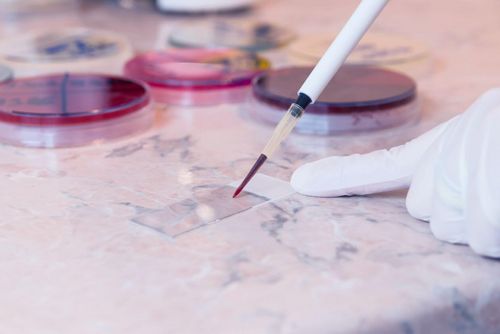Claude Perreault
Credit: Amélie Philibert
–
–
–
–
Research conducted at the Institute for Research in Immunology and Cancer (IRIC) at the University of Montreal and published this week in the journal Immunity could open the door to the development of a vaccine against a deadly form of blood cancer, acute myeloid leukemia (AML). “This is a major breakthrough because we have shown that certain antigens are effective against the development of cancer cells. These antigens seem to have all the qualities required to lead to treatment against AML, an objective deemed difficult to achieve, ”explains hematologist Claude Perreault, co-author of the article, which has 21 other signatories.
It was by exploring the precious Leucegene bank, which brings together cell samples from thousands of people with AML, that Professor Perreault and his colleagues were able to test their hypotheses, first in vitro, then using a animal model, mouse. Cells from 437 patients were needed to develop the treatment.
The results were so encouraging that researchers are now considering the first phase of clinical research involving around 100 patients recruited from around the world. “We want to act quickly, because we have good reason to believe that our approach could allow them to survive,” comments the professor of the Faculty of Medicine at UdeM. Recruitment will be done internationally, since we will choose patients who do not respond to existing treatments.
–
“In vivo veritas”
IRIC’s approach is to ensure the continuum between basic research and clinical application, as the example of the AML vaccine illustrates. When we obtain promising results in basic research, we can move on to application in animal models. “In vivo veritas», Summarizes the researcher.
The most difficult part has been to identify the antigens capable of attacking cancer cells. “To give you an idea of the scale of the task, the genome of a cell of the virus that causes the current pandemic is approximately 30,000 letters long; that of a cancer cell has six billion, approximately 200,000 times more … ”
The experience made it possible to specify the right targets. In 2018, Professor Perreault’s team caught the attention of the scientific community by discovering antigens on “junk DNA”, in other words in the huge pool of DNA whose usefulness we do not know. This had earned the team the attention of Québec Science in the selection of discoveries of the year in 2019.
–
Three conditions
Three conditions must be met before moving on to clinical research and possibly developing a medical treatment.
In addition to being present only on the cancer cells that we want to reach, the antigens must be common to several cancers; finally, the administration of the molecule must induce a strong immune response.
The three conditions have been met in this case and the publication in Immunity, a very influential journal in the scientific world, confirms this. The technology transfer company IRICoR and the Research-Development-Valorisation Office of the University of Montreal support the researcher and his team in the development of a vaccine.
But the researcher does not want to claim victory too quickly. “The success we have had on the mouse is a good sign, but it is not enough. Human populations are much more diverse than a group of mice. ”
For people with AML, the path proposed by IRIC is still promising.
–

